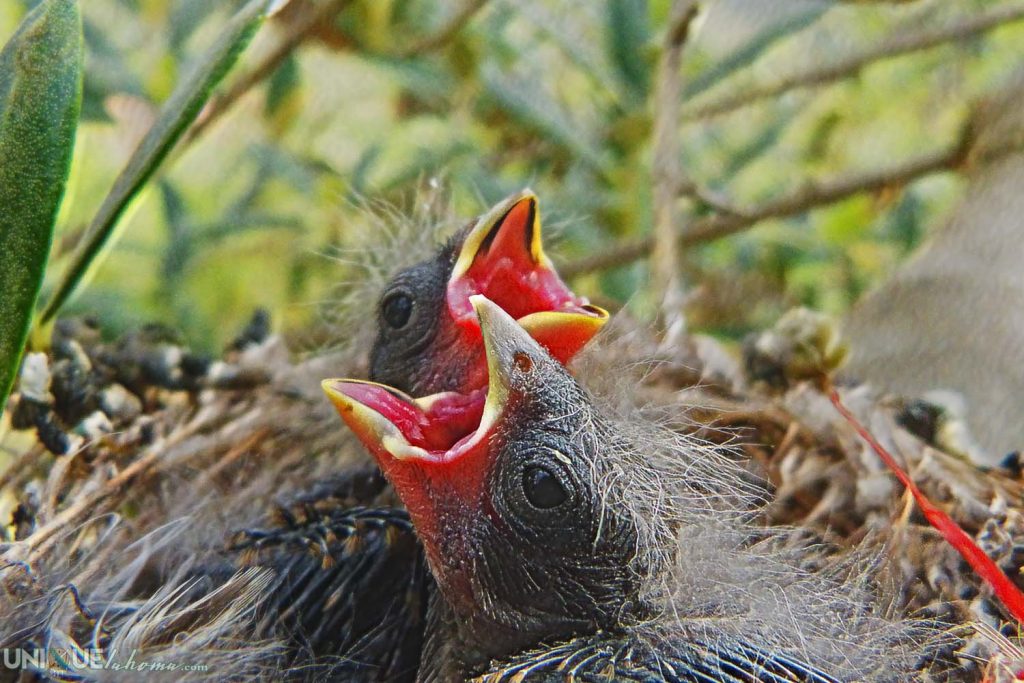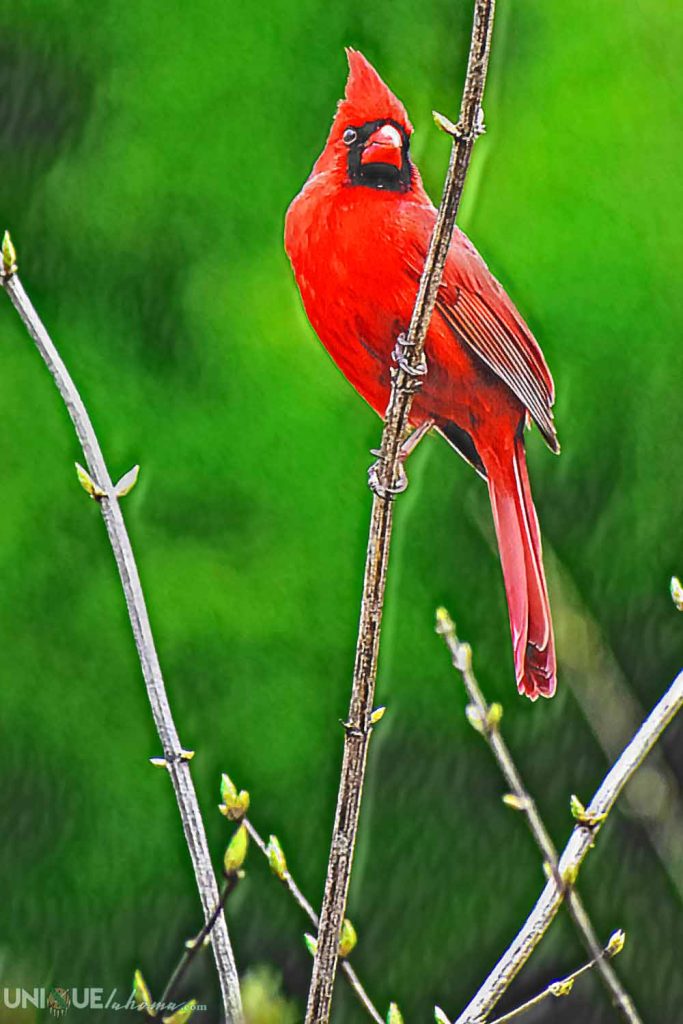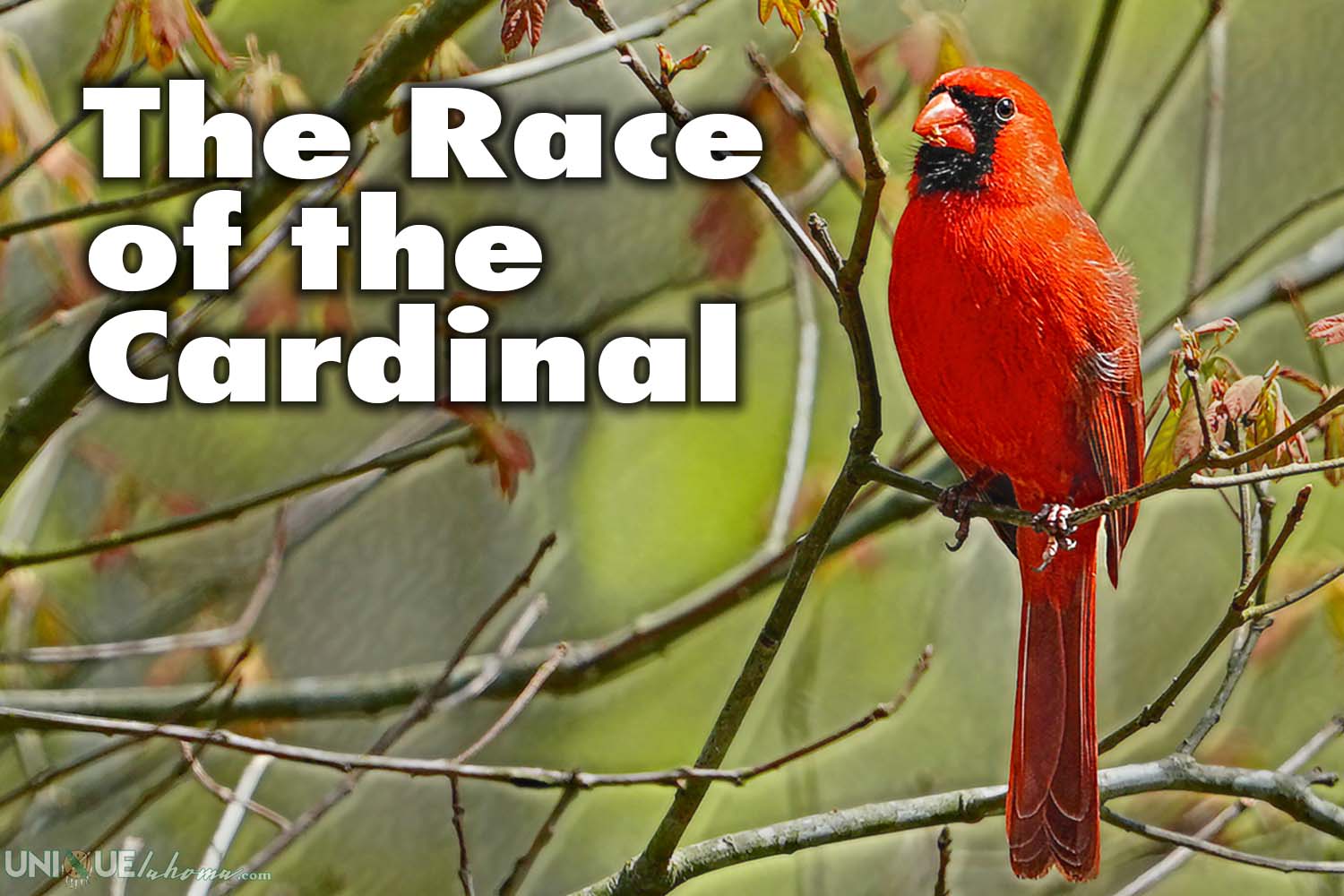The Race of the Cardinal
The exodus began with one. A near featherless hope for a future lingering just south of against the odds. The nest sat five feet above the ground, woven into a far-reaching branch of a sixth-year elm, built by a pair of monogamous Cardinals determined to succeed. This particular nest contained three eggs, and at first, it seemed like business as usual, with the female left to incubate while the male sauntered off in search of food.
For almost two weeks, I watched the same scenario play out. And then came a change. One day, I noticed that the mother was gone, and so were the eggs. They had been replaced with three tiny alien-looking things sporting wrinkled skin and small triangular beaks. Attached to a limb above, watching me as I watched them, was the father, the crest of his fiery redhead on full display.
What struck me as odd was that little was seen of the female after the babies had hatched. What had happened to her? Had she fallen victim to a predator? Had she decided that motherhood wasn’t for her and had decided to go to Vegas? My heart went out to this now seemingly single father, who had fallen for this tramp of a bird. Obviously, I am no ornithologist (if it hadn’t been for spellcheck, I wouldn’t have been able to spell the word), so I decided to do some research. What I learned was not only amazing but a check on gender role views.
The female, after laying and then incubating her small clutch, hadn’t abandoned her family at all. In fact, while the father was now caring for their young, the mother was busy constructing another nest and preparing for the next round. That’s right, my wayward woman had strapped on her proverbial tool belt and had begun to build. And not only was she doing it, but she had, in all likelihood, done it many times that year.
Cardinals will have up to four broods in a season. This fact created a new line of troubling thoughts for my already troubled mind. Why had nature sentenced this poor female bird to a life of arduous labor, both reproductive and otherwise? Was it fair that the father was allowed to languish with the children, only to wander off occasionally for seeds and a mealworm?

Then one day, my answer was delivered by way of panic. I sat near the tree as the sinking sun lay just above the horizon when a sudden movement caught my attention. One of the children had leaped from the nest and was now scampering down the branch. It dawdled a couple of feet and then came to a swaying stop. I sat there frozen, unsure of what I should do. The thing barely had feathers, much less balance.
It was then that a second one jumped from the nest. It stumbled its way to within inches of the other, and together they stood like two drunken sailors on a wave-driven ship. I had to act. These flightless creatures had become like family to me. I stood from my chair just as a red blur swooped by my head, causing me to pause. The third and final youngster then jumped from the vacated home, and soon there were three. All of them were standing like clueless soldiers awaiting orders.
After firing his warning shot at my scalp, the father came to perch on a branch above his immobile children, his face alternating from them to me. What was he doing? Did he not see the precarious position his kids were in? What would his wife think?
I was still lost in this confusion when the first one fell. It fluttered its immature wings and landed on the mulch-covered ground. I felt my heart leap and had decided then and there to do something, but before I could move, the other two plummeted. By then, the sun was completely shrouded by the surrounding oaks and cottonwoods, leaving only long-running shadows. I stepped to where they had landed but found only twigs and dried leaves. They were gone, having scampered off into whatever shelter their little legs could find.

At first, I considered searching for them, tearing through the natural debris until I could place them back where they belonged, but the thought of accidentally stepping on them held me back. Instead, I decided to reopen my research book in order to find the answer as to what went wrong. To my surprise, the only thing that went wrong was me.
Thirteen days had gone by since the birds had hatched, and after that amount of time, stumbling out of the nest and falling to the ground is precisely what they are supposed to do. From there, they would spend a few more days silent and statue still—infant racers against time, relying on the very creature that I deemed a deadbeat.
My earlier impression of the crested father, much like my assumption of the wayward mother, was about as off as off could be. As the babies silently waited for the growth cycle to be completed, it was his job to protect them, to stand guard through sleepless nights and painstaking days. Misleading and thwarting predators who came too close.
This, of course, only leads to more questions: How many of these young birds will survive? Will they manage to stay together? Is the mother in a union? All of these questions are answered through the tedious research of those much smarter than myself. But what I do know is that, as a father, I’m not nearly as heroic as a cardinal.




0 Comments